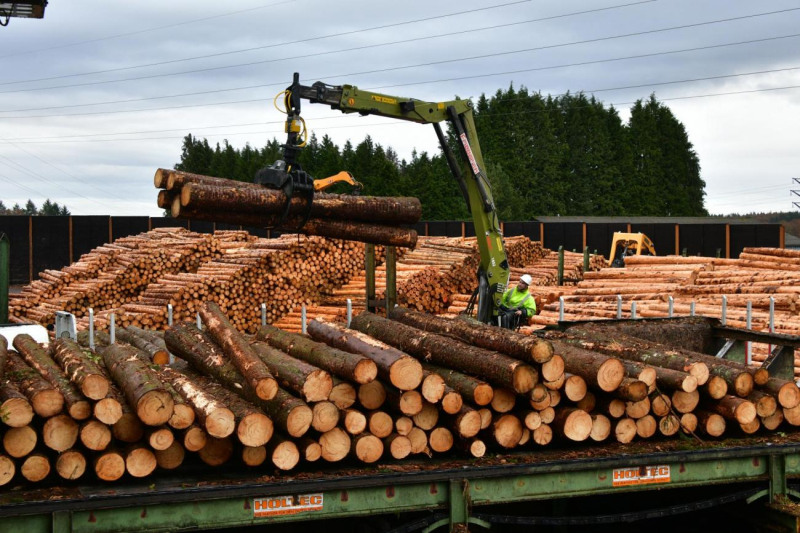
AFP – PASCAL LACHENAUD At the Farges Bois d'Egletons sawmill, in Corrèze, on December 15, 2022.
Back to the future in Japan, including the University of Kyoto has just launched a wooden satellite. A small revolution that suggests that this traditional material could become the future of sustainable transport. A look back at the unsuspected potential of wood for space, air and land mobility, which risks aggravating the deforestation problems.
On Tuesday, November 5, Japan did indeed send LignoSat into orbit, a magnolia satellite designed by the Kyoto University. Objective ? To explore the future of wood as an environmentally friendly material in space and terrestrial industries. A material loaded with history which, from the wheel to the bodywork, is now invited to the heart of advanced technologies. Could it be a better ally ?
The use of wood in transport is not new, as The Conversation reminds us.. From the De Havilland Mosquito fighters of World War II to the British Morgan cars, the strength and lightness of wood have proven themselves. Today, researchers at INSA Toulouse and the Clément Ader Institute are turning to poplar or birch plywood to optimize the strength of structures, while carbon-doped wood could revolutionize safety in car crashes. This ancient material outperforms aluminum and steel in terms of energy absorption during accidents.
But what is most appealing, a priori, it is the low ecological impact of wood. “In addition to being environmentally friendly during its manufacture and burning completely in the Earth's atmosphere once deorbited, a wooden satellite will be largely transparent to radio waves,” specifies the team of researchers. Unlike metal space waste, wooden satellites disappear without a trace. For companies like Aura Aéro and Mauboussin, which are testing wood for their aircraft, this return to grace of wood in advanced materials is above all a response to the environmental crisis, with potential for long-term sustainable development.
Except that healthy forests are needed to do this. While this is relatively the case in Europe, they are shrinking like shagreen leather in the South. It will therefore be necessary to keep in mind that exploiting this potential will be costly in terms of… wood, which is already expensive.
You liked the article ? It mobilized our editorial staff, which lives only on your donations.
Information has a cost, especially since competition from subsidized editorial staff requires increased rigor and professionalism.
With your support, France-Soir will continue to offer its articles for free because we believe that everyone should have access to free and independent information to form their own opinion.
You are the sine qua non condition for our existence, support us so that France-Soir remains the French media which allows the most legitimate people to express themselves.

